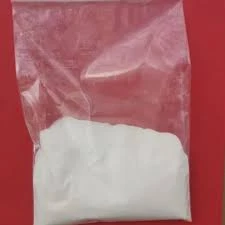The Importance of Zinc Dietary Supplements
Zinc is an essential trace mineral that plays a critical role in numerous biological functions within the human body. Although it occurs naturally in various foods, many individuals still find it beneficial to consider zinc dietary supplements to meet their recommended daily intake. With the rising interest in nutrition and health, understanding the importance of zinc and its supplementation has become increasingly relevant.
What is Zinc?
Zinc is one of the most abundant trace elements in the human body, involved in over 300 enzymatic reactions. It is crucial for immune function, protein synthesis, wound healing, DNA synthesis, and cell division. Zinc also supports the sensory functions of taste and smell and plays a role in maintaining skin health.
Dietary Sources of Zinc
Zinc can be found in a variety of food sources. Animal-based products such as red meat, poultry, seafood (especially oysters, which are particularly high in zinc), and dairy are excellent sources. Plant-based foods like beans, nuts, whole grains, and fortified cereals also contain zinc but often in a less bioavailable form due to the presence of phytates that inhibit zinc absorption.
Despite the availability of zinc-rich foods, certain populations may struggle to meet their daily requirements. Vegetarians, pregnant and breastfeeding women, the elderly, and individuals with gastrointestinal diseases are at a higher risk of zinc deficiency. In these cases, zinc dietary supplements can play a significant role in maintaining adequate zinc levels.
Benefits of Zinc Supplements
1. Boosting Immune Function Zinc is vital for the development and function of immune cells. Supplementing with zinc can help strengthen the immune system, making it more effective at fighting off infections and illnesses. Studies have shown that zinc supplementation can reduce the duration and severity of common colds.
zinc dietary supplement

2. Promoting Wound Healing Zinc plays a key role in maintaining skin integrity and structure. It is essential for proper wound healing, and topical zinc formulations are often used in treating skin injuries and irritations.
3. Enhancing Skin Health Zinc's anti-inflammatory properties can benefit individuals suffering from acne and other skin conditions. It can help reduce inflammation and regulate oil production, leading to clearer skin.
4. Supporting Cognitive Function Research suggests that zinc is crucial for cognitive health, particularly during childhood and adolescence when the brain is developing rapidly. Adequate zinc levels may support memory and learning.
5. Hormonal Balance Zinc influences hormone levels, particularly insulin, which is critical for blood sugar regulation. This can be especially beneficial for those at risk of insulin resistance or type 2 diabetes.
Considerations and Dosage
While zinc supplements offer numerous benefits, they should be taken with caution. Excessive zinc intake can lead to toxicity, resulting in symptoms such as nausea, diarrhea, and headaches. The recommended daily allowance (RDA) for zinc varies by age, sex, and life stage, typically ranging from 8 mg for women to 11 mg for men. It's advisable to consult a healthcare professional before starting any supplementation, especially for individuals with existing health conditions or those taking other medications.
Conclusion
Zinc is an essential mineral that plays a multifaceted role in supporting various bodily functions. For those unable to meet their daily zinc needs through diet alone, dietary supplements can offer an effective solution. By understanding the importance of zinc and considering appropriate supplementation, individuals can take proactive steps toward enhancing their overall health and well-being. As with any supplement, informed choices and guided usage are key to maximizing benefits and minimizing risks.

